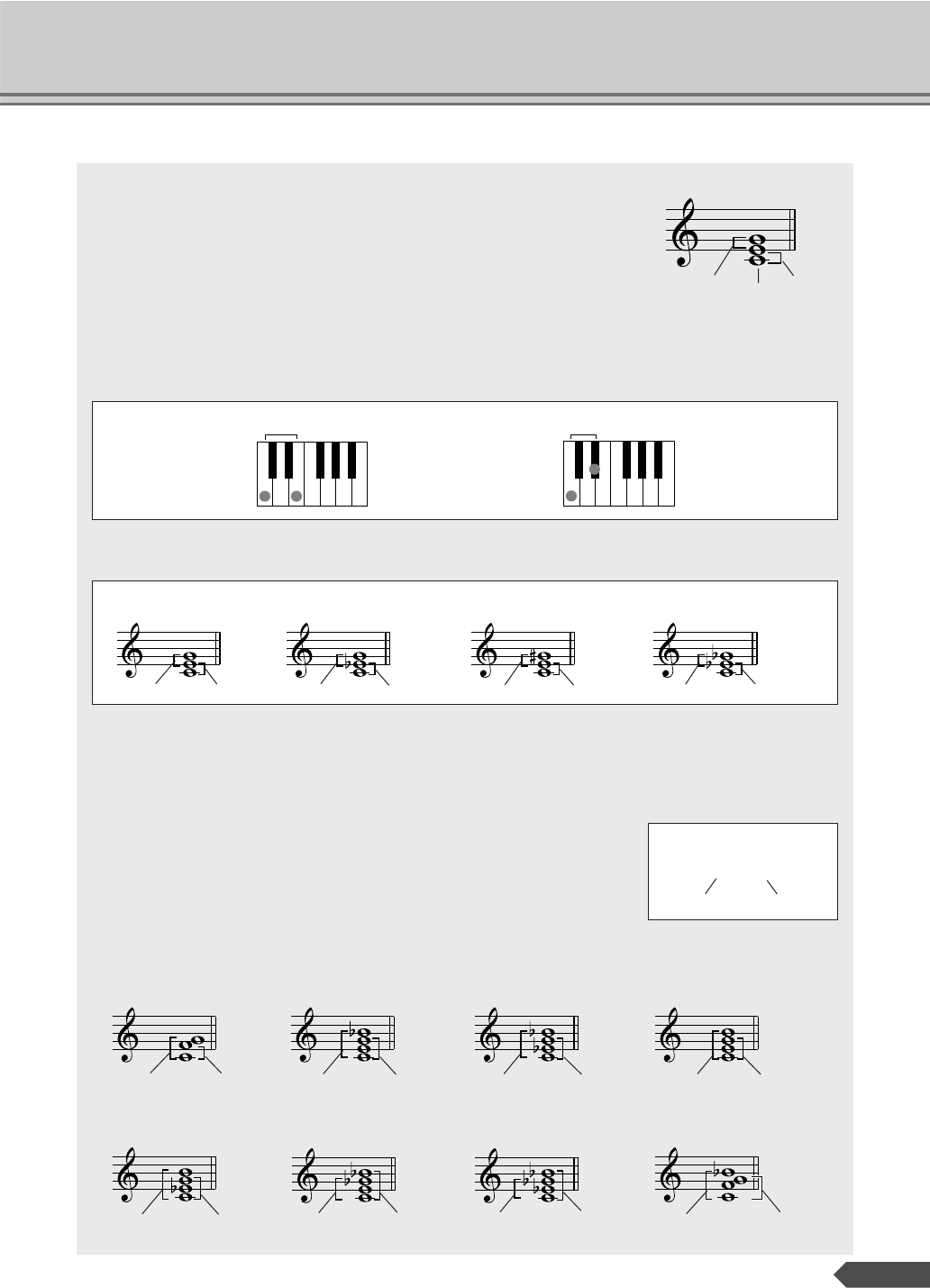
Playing Auto Accompaniment Chords
PSR-E203/YPT-200 Owner’s Manual 47
■ About chords
Playing two or more notes together simultaneously creates a “chord.”
Playing a note together with two other notes spaced three notes (steps) apart—such as the
notes C, E and G—creates a harmonious sound. Chords like these are called “triads” and
they play an important role in most music.
Taking the chord above as an example, the lowest note of this triad is called the “root note.” This is the central note
sound, and it supports or anchors the rest of the notes chord.
You’ll notice that the middle note of the chord above (E) is the third step in the succession of scale notes—C, D, then E.
There are two types of “thirds” in chords: major thirds and minor thirds.
We’ll also alter the top note of our original chord and make three additional chords, as shown below. (The captions indi-
cate the intervals between each of the notes.)
The basic characteristics of the chord sound are same, no matter if we change the order of the notes from bottom to top,
or if we add other same name notes in different octaves. Beautiful sounding harmonies can be built in this manner, and
emotional music can be created by playing different chords one after the other according to commonly accepted rules.
Harmony determines the nature of chords, and music is created based on harmony.
● Chord names
From the chord name, you can tell at a glance what type of chord it is and which notes
make up the chord. Understanding the basic structure of chords is very useful—once
you’re familiar with this, you’ll be quickly and easily play chords by looking at the
names that appear above the notation.
● Chord types (These chords are among those that can be recognized by the Fingered method.)
3rd
Root
3rd
Minor third—three half steps from the rootMajor third—four half steps from the root
◆ Major chord
C
M
C
m
C
aug
C
dim
Minor 3rd Major 3rd Major 3rd Minor 3rd Major 3rd Major 3rd Minor 3rd Minor 3rd
◆ Minor chord ◆ Augmented chord ◆ Diminished chord
Root note
Cm
Chord type
C
sus4
Suspended 4
th
Perfect 5
th
Perfect 4
th
C
7
7
th
Flatted 7
th
Major chord
C
m7
Minor 7
th
Flatted 7
th
Minor chord
C
M7
Major 7
th
Major 7
th
Major chord
C
mM7
Minor/major 7
th
Major 7
th
Minor chord
C
7
(
b5
)
7
th
, flatted 5
th
Flatted 5
th
7
th
chord
C
m7
(
b5
)
Minor 7
th
, flatted 5
th
Flatted 5
th
C
7sus4
7
th
, suspended 4
th
Flatted 7
th
Suspended 4
th
chordMinor 7
th
chord


















